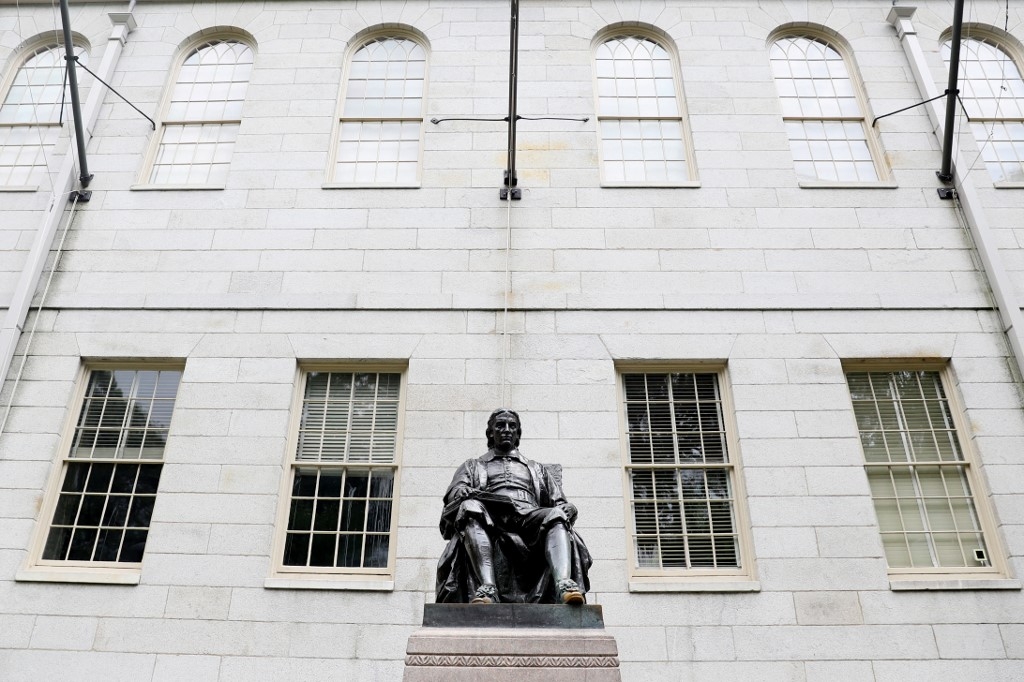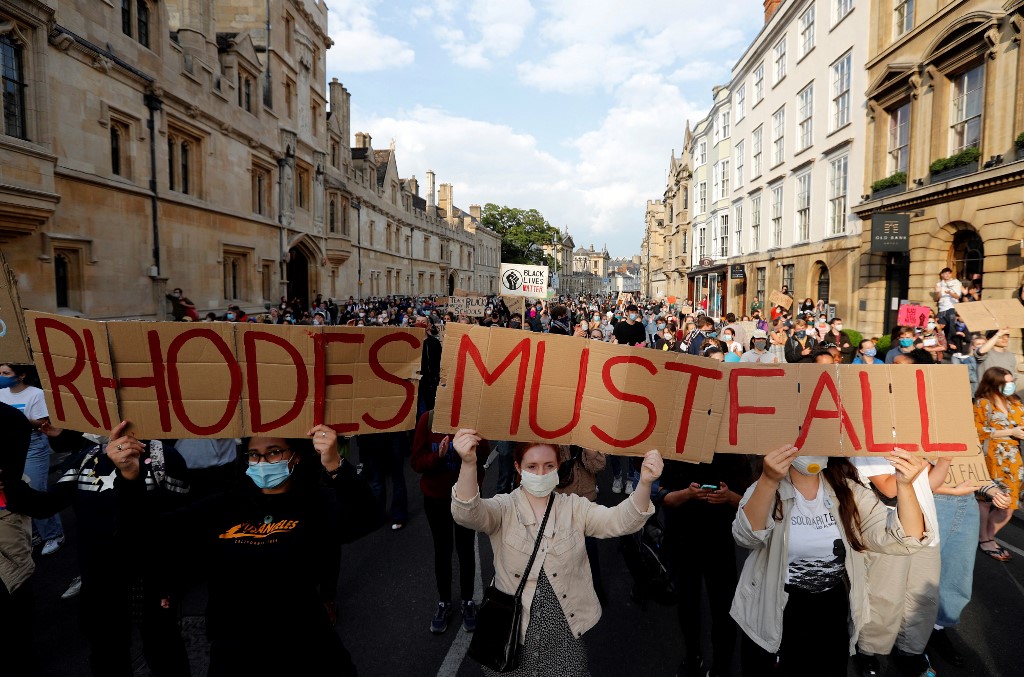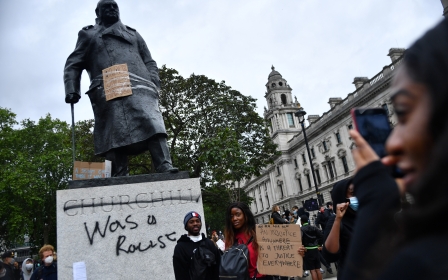Western universities struggle to grow away from their racist roots

Last April, Harvard president Larry Bacow released "the Report of the Committee on Harvard & the Legacy of Slavery, accepted the committee's recommendations in full, and announced a historic commitment of $100 million to fund their implementation," according to a detailed internal report on the school's four-century connection to slavery.
This seems to be a season of public penance for American universities, as they come to terms with nasty skeletons in their closets. How can a university muster the moral authority to teach anyone anything with that kind of horrid past?
"The report by a committee of Harvard faculty members... is Harvard's effort to begin redressing the wrongs of the past, as some other universities have been doing for decades," according to an article in the New York Times.
The racist roots of American and European universities are being exposed, and their nasty implications in human misery publicised for the whole world to see
But how exactly is this redressing to be done? When people heard John Henry Newman's lofty ideas in the 1850s, later collected in the volume The Idea of a University, they might be forgiven for thinking that Europeans and Americans were truly engaged in the perfection of the human soul, and that universities were a place to cultivate young people for an upright moral life.
Really? "Enslaved men and women served Harvard presidents and professors and fed and cared for Harvard students," the Harvard report reveals. Was that evidence of Newman's ideas reaching the new world?
New MEE newsletter: Jerusalem Dispatch
Sign up to get the latest insights and analysis on Israel-Palestine, alongside Turkey Unpacked and other MEE newsletters
The racist roots of American and European universities are being exposed, and their nasty implications in human misery publicised for the whole world to see. This is not a cause for jubilation, or even for a sigh of relief that truth is finally triumphing. This is a moment for sober reflection and an opportunity to remedy the structural issues such reports expose for the next generations of higher education.
Cultural hegemony
At least since the reflections of the towering Italian thinker Antonio Gramsci, we have known that education is a solid source of cultural hegemony of the ruling class. But the relatively widespread availability of higher education, and the attraction of a global body of students to US and European universities, has demographically altered their compositions.
A much larger and more diverse body of students, faculty and administration is now attentive to the roots and fruits of these universities.
This cycle of soul-searching began some two decades ago with Brown University examining its roots in slavery. Soon afterwards, Harvard College acknowledged it had relied on slave labour, and Princeton University admitted to holding a slave auction in 1766.
At my own university, Columbia, sons of merchants involved in the slave trade were enrolled, while Dartmouth College admitted that at one time there had been "arguably as many enslaved Black people... as there were students". This was at a time when University of Pennsylvania faculty and alumni "were actively involved in framing the Constitution to support slavery".
European universities were not exempt. Oxford began probing its own role in British colonialism in 2019, in what the Guardian described as "a pioneering effort to crowdsource and 'decolonialise' its own imperialist past". This led to the establishment of an informed and informative website detailing the history of Oxford's racist roots in slavery and colonialism.
These events at Oxford started with a student-led movement that originated in South Africa, called "Rhodes Must Fall" - a reference to Cecil Rhodes, Oxford's imperialist benefactor. But Oxford ultimately decided to keep its Rhodes statue intact, because it would have been too expensive to remove it.
Other UK universities are equally implicated. The University of Glasgow admitted it had received more than $258m from people who derived their wealth from slavery, while the University of Bristol "estimated that 85 percent of the wealth used to found the university depended on slave labour," according to Reuters.
Invested in slavery
On both sides of the Atlantic, US and European universities were founded on the profits made from the transatlantic slave trade and the lucrative business of colonialism.
In these universities, the children of slave traders and colonial officers were educated, and indeed indoctrinated, in the validity of their conquests and in the political culture and moral depravity that sustained this sick tradition.
What do we do now? Admitting mea culpa is of course necessary, but not sufficient.
Revelations that top American and European universities were heavily invested in slavery, benefited from the slave trade, and were institutional advocates of colonialism is a major event in the history of higher education. But what exactly needs to be done once such revelations are widely publicised?
Allocation of resources to diversify the student and faculty body to include the descendants of the impoverished, robbed and denigrated communities - Black people, Native Americans, Latinx, and students and faculty from across the colonial world - is of course an absolute must.
While western universities are today quite cognizant of the disenfranchised communities in their midst and seek to recruit more from these communities, this does not apply to students from around the world subject to their colonial and imperial violence. This is a serious shortcoming.
Students and scholars from Asia, Africa and Latin America, where the EU and US have been definitive to their national miseries, must be given particular attention. Today, Afghan and Iraqi students in particular need to be given financial resources for their higher education in American and European universities.
The path forward
But what exactly are these students and scholars to study or teach in these universities; further indoctrination in white supremacist curricula? The urgent task of remedying the horrors of the past must include serious reconsideration of the future of college curricula.
Meaningful reparations can only occur when the history of racism, slavery and colonialism is brought to the forefront inside European and American university classrooms.
But today, even the body of scholarship produced under the rubric of "critical race theory" or "intersectionality" is under attack by reactionary forces in Europe and the US.
Private universities at the mercy of political pressure could never lead the way, except within the conservative contexts determined by their wealthy donors, which continue to oppose any serious curricular changes. This is where the global media is an equally, if not even more, crucial public sphere where such changes can be inaugurated.
The most racist white supremacist political movements are sustained and agitated by false assumptions about the uniqueness and superiority of 'western civilisation'
Consider when the New York Times launched two crucial projects: the 1619 Project on the history of slavery, and the Haiti "Ransom" Project on French colonialism in Haiti. To be sure, these two seminal projects are based on generations of scholarship, but such scholarship does not easily translate into curricular changes.
"Western civilisation" continues to be the codeword for the sustained indoctrination of successive generations of students, who are kept critically unaware not just of other civilisations, but also of the troubling origins of civilisational thinking.
Nothing enduring or significant follows so long as we have curricular apartheid, with "western civilisation" receiving preferential treatment and enormous resources, while all the other civilisations, cultures and accompanying suffering are delegated to the poorly financed periphery.
Today, issues of environmental justice, mass refugees, labour migration, and the organically changing character of world cultures are far more crucial to understand than a fake and forced emphasis on "western civilisation". Today, the most racist white supremacist political movements are sustained and agitated by false assumptions about the uniqueness and superiority of "western civilisation," to which elite universities remain committed.
There is no redressing the sustained history of US and European universities' involvement with slavery, racism and colonialism without first dismantling its sustained ideological premise.
The views expressed in this article belong to the author and do not necessarily reflect the editorial policy of Middle East Eye.
Middle East Eye delivers independent and unrivalled coverage and analysis of the Middle East, North Africa and beyond. To learn more about republishing this content and the associated fees, please fill out this form. More about MEE can be found here.







